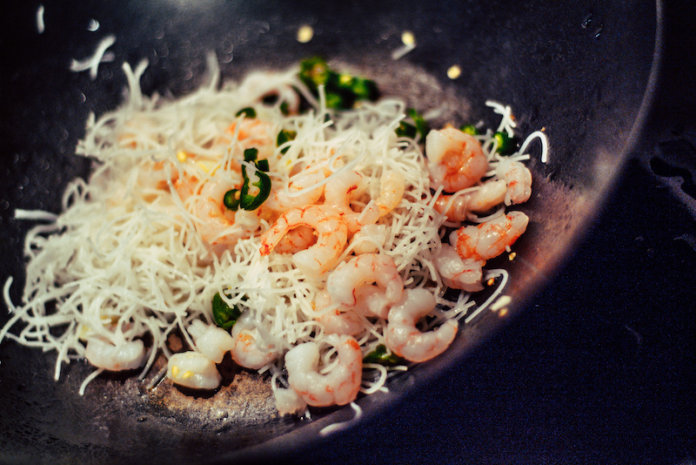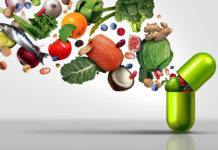Is the Pescatarian Diet Right for You?
While you’ve likely heard of such diets as paleo, Mediterranean and Atkins, one you may not be as familiar with is the pescatarian diet. This is because it isn’t widely touted as being the latest, greatest weight loss eating program, but is instead simply a heart-healthy eating program which features lean proteins, good fats and unprocessed whole foods.
And yes, it can help you lose fat and maintain lean muscle mass, along with some other health and environmental benefits.
What is the Pescatarian Diet?
Simply put, a pescatarian is a vegetarian who eats fish. This differs from lacto-ova vegetarians or vegans who respectively either include the consumption of eggs and dairy in their diets or exclude animal products altogether.

Why Fish?
When it comes to the macronutrients in your diet, protein that includes all 9 essential amino acids—AKA complete protein—and good fats are key. While there are some sources of complete plant-based protein, the choices are limited to only a few, the most common of which is soy. Unfortunately, even though soy is seemingly everywhere, it is hard to digest and contains phytoestrogens that mimic real estrogen in your system. (2, 3)
Likewise, vitamin B12 is only available from animal sources such as fish, and fish such as salmon is also widely considered to be near the top of the list when it comes to omega 3 rich foods.
Altogether, this helps the pescatarian diet to:
- Improve heart health
- Lower inflammation
- Prevent obesity and maintain lean muscle mass
- Reduce the risk of chronic diseases such as diabetes, heart attack and stroke
- Maintain a balanced endocrine system
- Avoid conditions related to vitamin B12 deficiency such as fatigue, nerve problems and depression (4, 5)
And it isn’t only your health which a pescatarian diet supports, but the health of the environment as well. This is because unlike food sources such as beef, poultry or pork, most fish have very little environmental impact and come from sustainable sources.
However, not all do.
The Healthiest Fish
Unfortunately, not all fish are entirely healthy, and there is also ethical sourcing and other environmental concerns to be aware of with certain types of fish.
For instance, some fish are high in mercury and polychlorinated biphenyl (PBA) content due to industrial contamination, especially those from warm waters that are high on the food chain. Antibiotics, pesticides and drugs are also commonly used to farm fish. This is in addition to grains such as corn and soy being used as feed, which are not only an unnatural for the fish, but lower their protein and omega 3 content. (6, 7)
Instead, stick with wild-caught fish from cold water sources such as salmon or cod, or those low on the food chain such as anchovies or sardines. This ensures you are not only reducing the amount of toxins in your seafood, but also that you are enjoying one of the most protein and omega 3 rich foods there are.
To verify the sustainability of your seafood, go here for guidelines and recommendations set up by the Monterey Bay Aquarium Seafood Watch using scientific data to help you make ocean-friendly choices.
The Whole Diet
Of course, an unhealthy diet is still an unhealthy diet whether you add fish to it or not. For instance, most fast food restaurants have fish sandwiches on their menu which are deep fried, highly processed, and no better for you than most other items on fast food menus. This means that despite the sandwich containing protein and some vitamins and minerals, the trans fats, simple carbohydrates and high sodium content are likely to negate most of these benefits.
Instead, along with fresh, wild-caught fish, a healthy pescatarian diet needs to include plenty of natural whole foods such as multi-colored fruits and vegetables, nuts, whole grains and legumes. This means avoiding foods high in processed flour, sugar, trans fats, hydrogenated fats and sodium.
In fact, a good rule of thumb is to avoid excess consumption of “white foods” such as sugar, certain fats and salt, and instead think of yourself as a whole foods vegetarian who eats fish.
 Going Pescatarian
Going Pescatarian
When it comes to a heart-healthy eating program that is easy in the environment, it’s hard to beat the pescatarian diet. This is because fish can be the perfect source of quality protein, omega 3 fatty acids and vitamin B12 along with many other essential vitamins and minerals.
And, when correctly sourced, fish can also be both highly sustainable and easier on the environment than most other types of meat.
And, let’s not forget one other key quality of fish: it’s delicious!
Bon appetite.
References:
- https://www.healthline.com/nutrition/pescatarian-diet
- https://health.clevelandclinic.org/do-i-need-to-worry-about-eating-complete-proteins/
- https://www.hsph.harvard.edu/nutritionsource/soy/
- https://www.medicalnewstoday.com/articles/324265
- https://www.healthline.com/nutrition/11-health-benefits-of-fish#section5
- https://www.doh.wa.gov/CommunityandEnvironment/Food/Fish/ContaminantsinFish
- https://www.mindbodygreen.com/0-11561/9-things-everyone-should-know-about-farmed-fish.html





